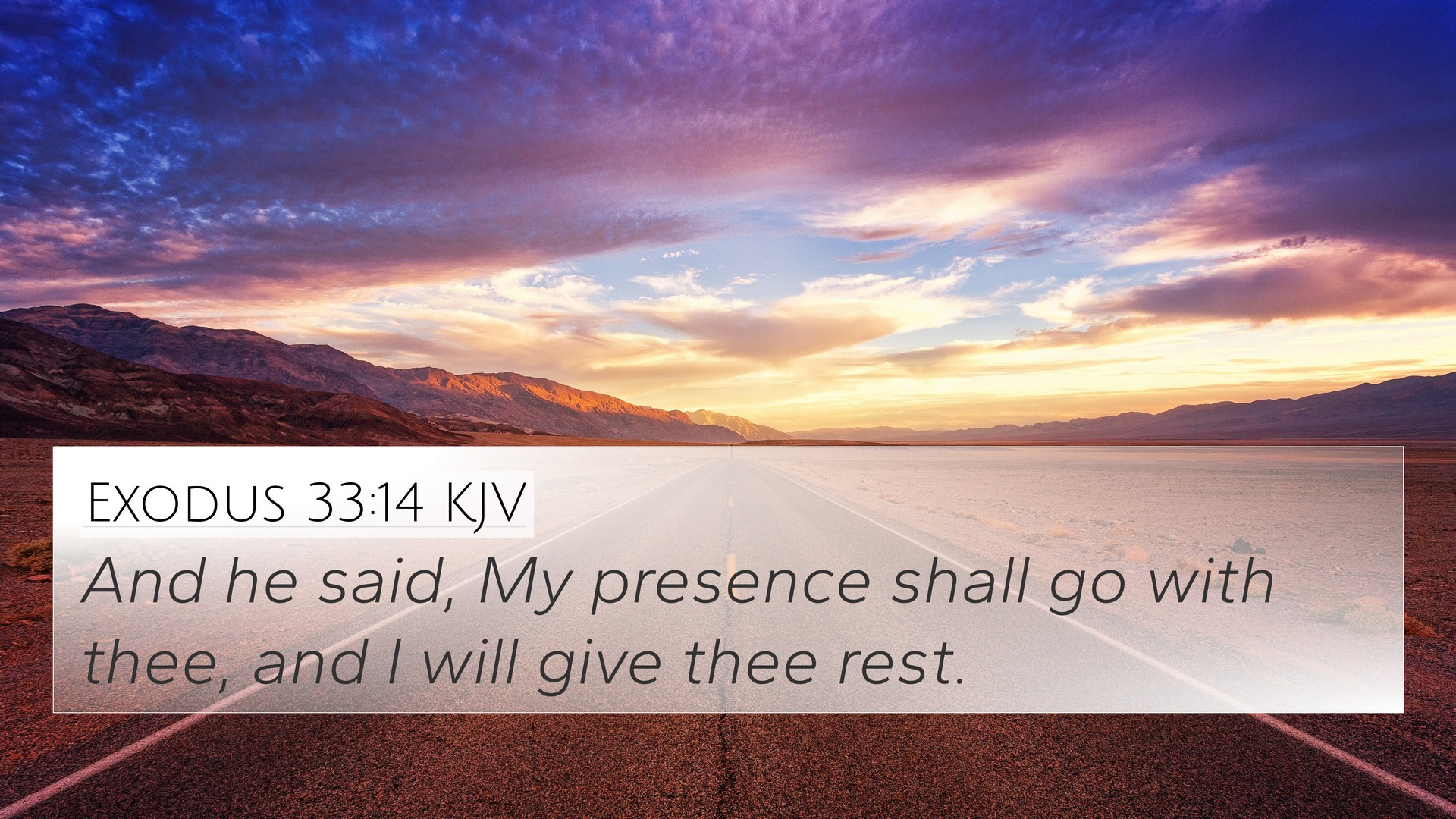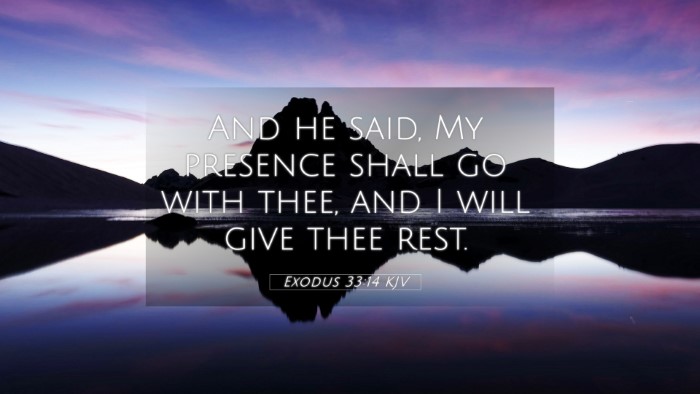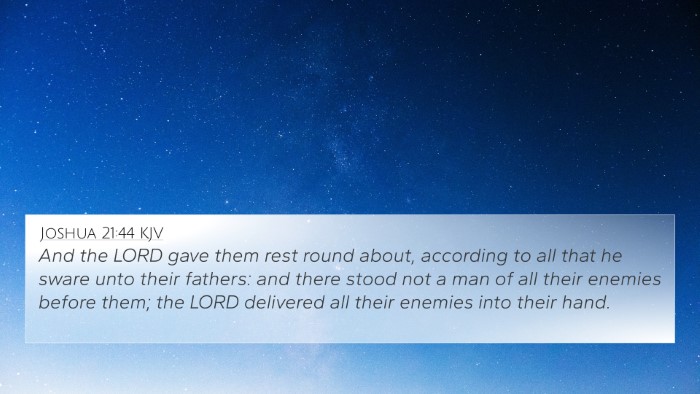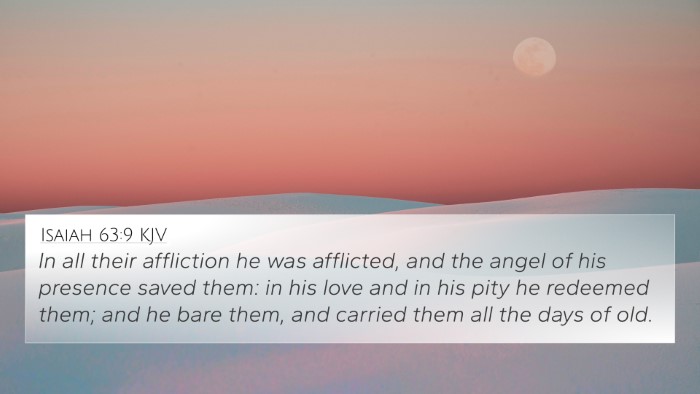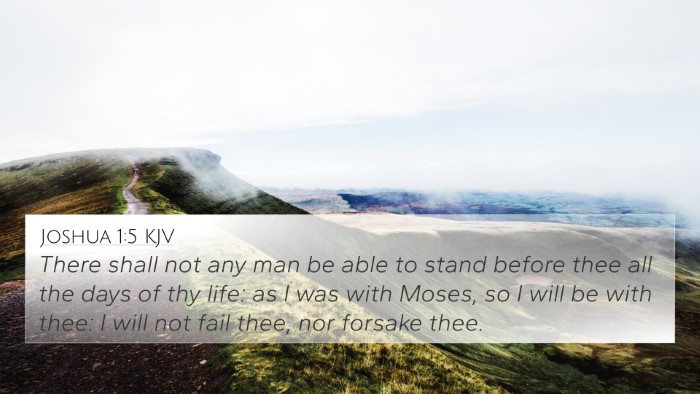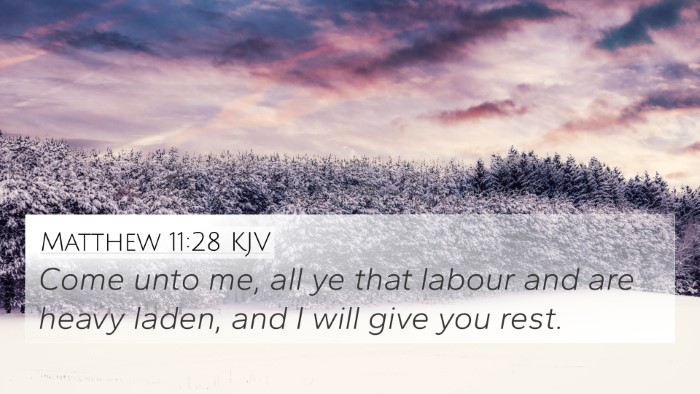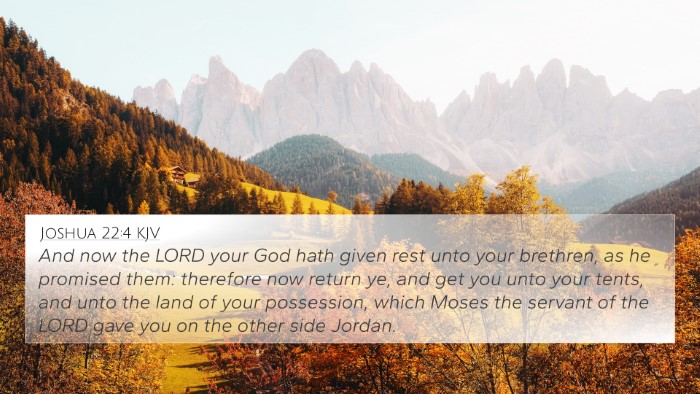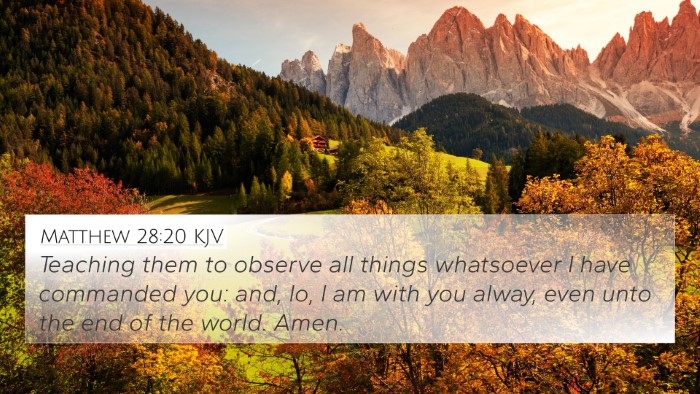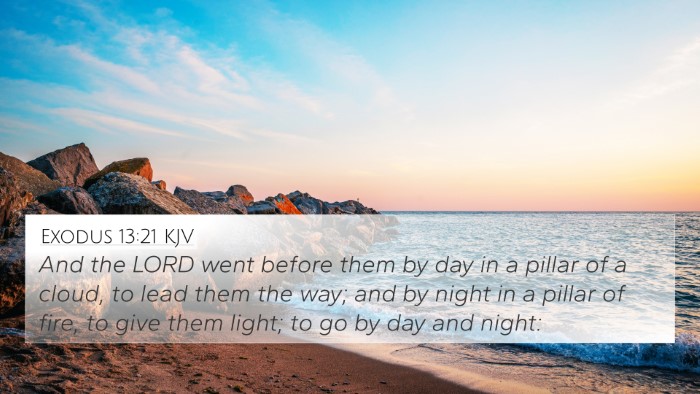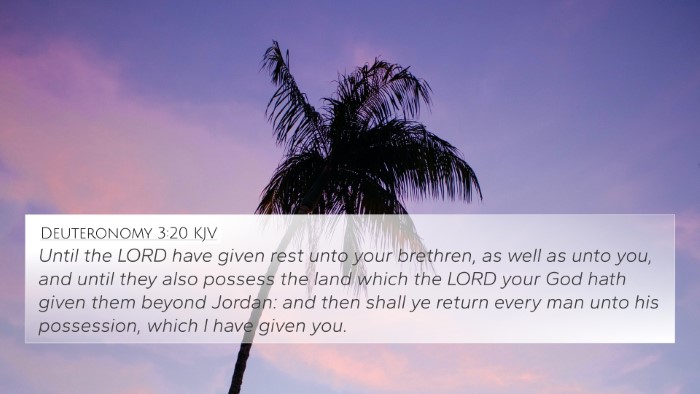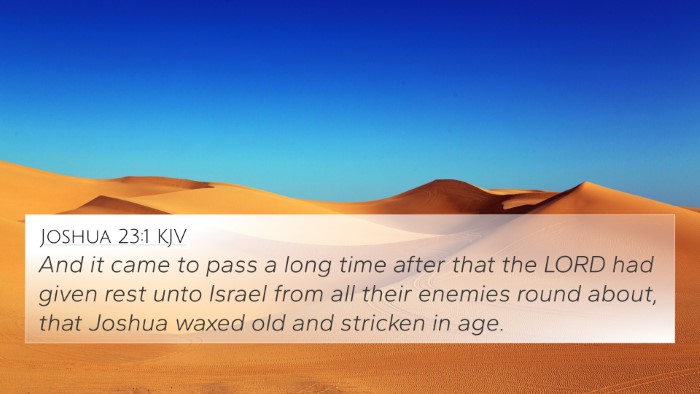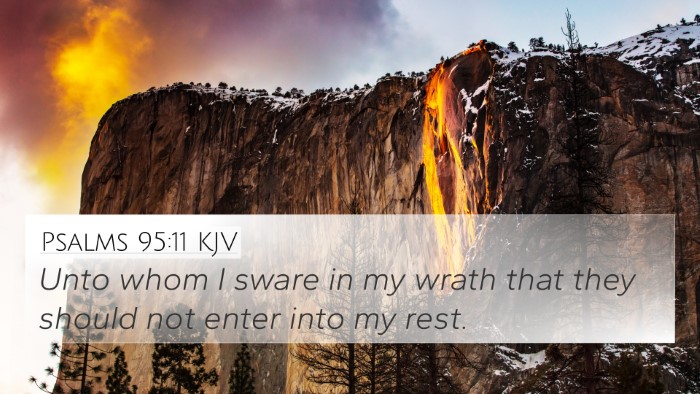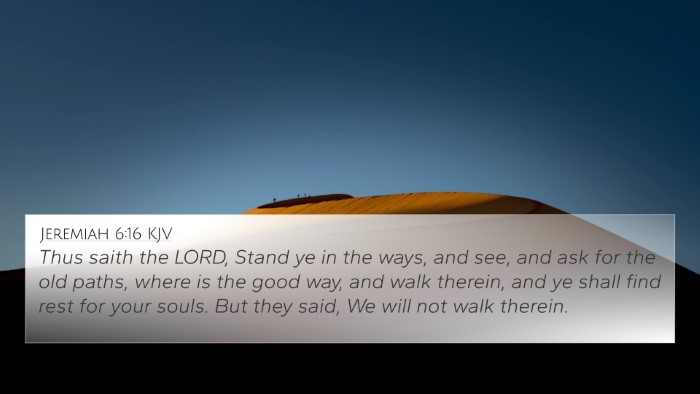Understanding Exodus 33:14
Verse Text: "And he said, My presence shall go with thee, and I will give thee rest." (Exodus 33:14)
Summary of Meaning
Exodus 33:14 is a profound promise from God to Moses that emphasizes His presence and the rest that it brings. This divine assurance is crucial, especially when considering the burdens Moses faced as a leader of the Israelites. The verse can be unpacked through insights from various public domain commentaries including those by Matthew Henry, Albert Barnes, and Adam Clarke.
Commentary Insights
-
Matthew Henry:
Henry highlights that God's presence is the heart of the covenant relationship between God and His people. He notes that the promise of rest signifies not merely physical rest but also spiritual peace and assurance amidst trials. This underscores the idea that true rest comes from being in alignment with God's will.
-
Albert Barnes:
Barnes emphasizes the significance of God’s presence as indispensable for guidance and success. He explains that the phrase “My presence shall go with thee” implies companionship and divine support, which is necessary for the journey ahead. Barnes also contrasts this divine promise with the weariness often experienced in human leadership.
-
Adam Clarke:
Clarke speaks to the relational aspect of God’s presence. He interprets God’s promise as an invitation to intimacy, suggesting that Moses’ leadership and the burdens he carries are made lighter through the assurance of God walking alongside him. Clarke notes that God’s presence is the source of true rest and peace.
Bible Cross-References
Exodus 33:14 can be linked to several other Bible verses that reinforce its themes:
- Matthew 28:20 - "And, lo, I am with you always, even unto the end of the world." This emphasizes God's enduring presence.
- Psalm 23:4 - "Even though I walk through the valley of the shadow of death, I will fear no evil, for you are with me." This reflects the comfort of God's presence in times of trouble.
- Isaiah 41:10 - "Fear thou not; for I am with thee: be not dismayed; for I am thy God." God reassures believers of His support and presence.
- Hebrews 13:5 - "For he hath said, I will never leave thee, nor forsake thee." This reiterates the promise of divine companionship.
- 2 Corinthians 12:9 - "My grace is sufficient for you, for my power is made perfect in weakness." It indicates that God's presence provides strength in weakness.
- John 14:27 - "Peace I leave with you; my peace I give to you." The peace offered by Christ mirrors the rest God grants in Exodus.
- Romans 8:31 - "If God be for us, who can be against us?" This verse emphasizes the security found in God's presence.
Thematic Connections
When conducting a comparative analysis of Bible verses, it's essential to recognize how diverse scripture passages interlink, providing deeper insights:
- Divine Presence: Both Exodus 33:14 and Matthew 28:20 speak to the reality of God’s abiding presence in the believer's life.
- Spiritual Rest: The theme of rest is explored in both Exodus and Psalm 23, where God's presence leads to inner peace.
- Assurance in Leadership: Similarities exist between Moses’ experiences and the exhortations given in Hebrews regarding God's support.
Tools for Bible Cross-Referencing
To deepen one’s understanding of cross-references, consider employing various tools and methodologies:
- Bible Concordance: A structured index to find biblical terms and related verses.
- Bible Cross-Reference Guide: Includes resources to navigate connections within scripture effectively.
- Cross-Reference Bible Study: Methods to explore thematic relationships between passages.
Conclusion
Exodus 33:14 serves as a pivotal verse that emphasizes God's presence as integral to peace and guidance in the believer's life. Its connections with various scriptures underline the importance of understanding the interrelationships within the Bible as a whole. Utilizing cross-reference tools and methodologies enhances one’s deep exploration into the scripture, revealing the rich tapestry of divine promise and support that extends throughout both the Old and New Testaments.
